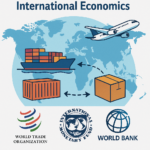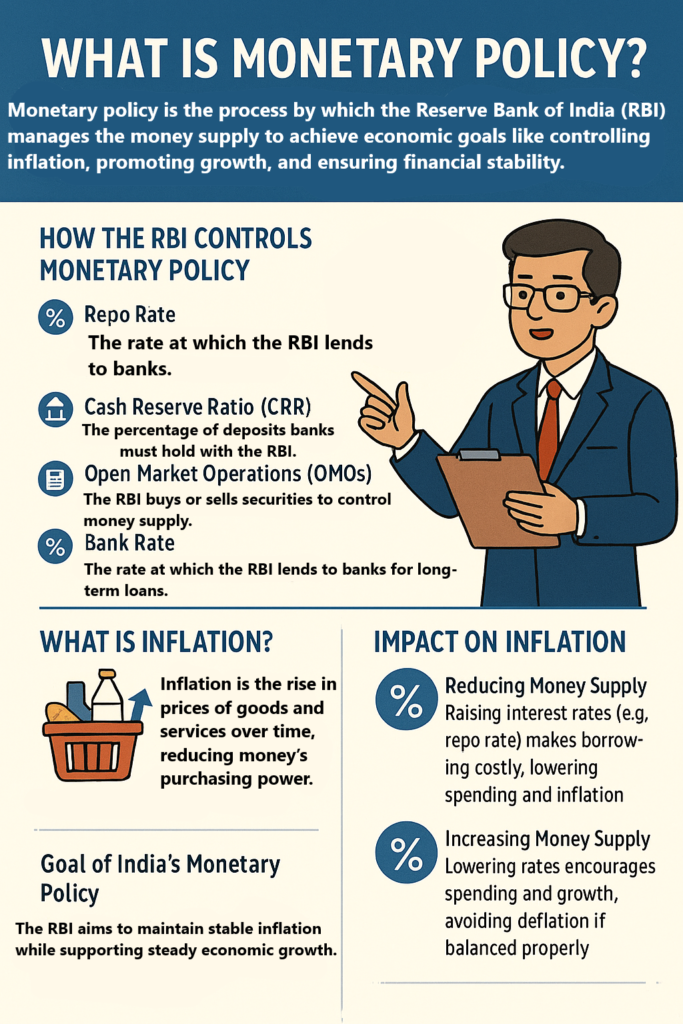What is Gold?
Gold is a precious metal that has been used by humans for thousands of years. It’s shiny, durable, and rare, which is why it’s been valued across many different cultures and economies. People use gold for making jewelry, coins, and other valuable items, but it also plays a crucial role in the global economy.

Why is Gold Important in the Economy?
Gold has been an important part of the global economy for centuries because of its stability and value. Even though we now have paper money and digital currencies, gold still plays a big role in global financial systems. Here’s why:
- Store of Value:
- Gold acts as a store of value, meaning that it holds its worth over time. Unlike paper money, which can lose value due to inflation or economic instability, gold tends to maintain its purchasing power. This is because it’s rare and durable.
- Safe-Haven Asset:
- In times of economic uncertainty (like a financial crisis, war, or inflation), people and investors often buy gold to protect their wealth. Gold is seen as a “safe-haven” asset, meaning it tends to keep its value when other investments (like stocks or currencies) lose value.
- Hedge Against Inflation:
- Inflation is when the prices of goods and services increase over time, which reduces the purchasing power of money. Gold is often considered a hedge against inflation, meaning that when inflation rises, the price of gold tends to increase as well. This makes it a good investment to preserve wealth.
How Does Gold Help Global Economic Stability?
Gold plays an important role in global economic stability in several ways:
- Central Banks and Reserves:
- Central banks (like the Federal Reserve in the U.S. or the Reserve Bank of India) hold large amounts of gold in their reserves. This is because gold is a reliable store of value, and it can help stabilize national currencies during times of economic stress.
- Countries use gold reserves to support their national currency. If a country’s currency loses value, gold can help restore confidence in the economy. For example, if a country has a lot of gold, it can show that the country has financial strength, which helps keep the economy stable.
- Backing for Paper Money:
- In the past, many countries used the gold standard system, where their paper money was directly tied to a fixed amount of gold. While most countries have moved away from the gold standard today, gold still plays a role in assuring people that a currency is trustworthy and stable.
- Today, even though paper money isn’t backed by gold, central banks still hold gold as part of their foreign exchange reserves to back their financial systems.
- Global Trade and Investments:
- Gold is traded around the world, and its price is often seen as an indicator of the health of the global economy. When global economic conditions are unstable, the demand for gold increases, driving up its price.
- Investors and governments look at gold prices to gauge the overall economic mood. If gold prices are rising, it may signal concerns about inflation or economic instability. If they are falling, it might indicate economic confidence and growth.
- Stabilizing Currencies:
- When there is currency volatility or when a country’s currency weakens, investors might buy gold as a way to protect their assets. The price of gold tends to go up when the value of major currencies (like the U.S. dollar or the euro) goes down, because people look for something stable.
- This helps to stabilize the global economy because it gives people and institutions an alternative to holding potentially unstable currencies.
Gold in Financial Crises
During financial crises, when markets are shaky, people often turn to gold as a way to preserve their wealth. Here’s how gold behaves in times of trouble:
- 2008 Financial Crisis:
- In the 2008 global financial crisis, many financial markets faced big losses. While stocks and currencies lost value, gold prices actually went up. Investors bought gold because they were worried about the stability of other investments, like bank stocks and real estate.
- Economic Downturns:
- During times of economic downturn, like recessions or periods of high inflation, people may lose confidence in banks or governments. As a result, they may turn to gold as a more reliable form of wealth preservation.
- Geopolitical Tensions:
- Gold can also act as a stabilizing force during times of geopolitical instability—such as wars, trade tensions, or political uncertainty. When people fear the unknown, gold offers a sense of security because it’s not tied to any one country or economy.
The Limitations of Gold
While gold is important, it does have some limitations:
- Not a Source of Income:
- Unlike stocks or bonds, gold doesn’t generate income like dividends or interest payments. It’s primarily an investment for wealth preservation, not for earning regular returns.
- Storage and Transportation:
- Storing large amounts of gold can be expensive, and moving it around can be difficult. This is why many investors hold gold in the form of gold-backed securities or in a bank vault, rather than physical gold.
- Price Fluctuations:
- The price of gold can go up and down, depending on many factors, including global economic conditions, inflation, and currency strength. While it’s a relatively safe investment, it’s not immune to price volatility.
Conclusion
In summary, gold plays a very important role in maintaining global economic stability:
- It acts as a store of value and a safe-haven asset during times of economic or geopolitical uncertainty.
- Gold helps central banks manage their reserves and back their currencies, providing financial stability.
- It also serves as a hedge against inflation and is an important part of the global financial system, signaling economic health or concerns.
Even though the global economy has evolved, and we now have paper money and digital currencies, gold continues to be an essential part of how countries, investors, and people protect their wealth and navigate economic uncertainty.











